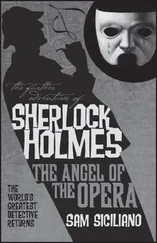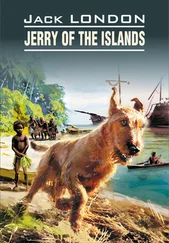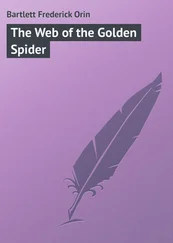Ahern, Jerry - The Web
Здесь есть возможность читать онлайн «Ahern, Jerry - The Web» весь текст электронной книги совершенно бесплатно (целиком полную версию без сокращений). В некоторых случаях можно слушать аудио, скачать через торрент в формате fb2 и присутствует краткое содержание. Жанр: Старинная литература, на английском языке. Описание произведения, (предисловие) а так же отзывы посетителей доступны на портале библиотеки ЛибКат.
- Название:The Web
- Автор:
- Жанр:
- Год:неизвестен
- ISBN:нет данных
- Рейтинг книги:4 / 5. Голосов: 1
-
Избранное:Добавить в избранное
- Отзывы:
-
Ваша оценка:
- 80
- 1
- 2
- 3
- 4
- 5
The Web: краткое содержание, описание и аннотация
Предлагаем к чтению аннотацию, описание, краткое содержание или предисловие (зависит от того, что написал сам автор книги «The Web»). Если вы не нашли необходимую информацию о книге — напишите в комментариях, мы постараемся отыскать её.
The Web — читать онлайн бесплатно полную книгу (весь текст) целиком
Ниже представлен текст книги, разбитый по страницам. Система сохранения места последней прочитанной страницы, позволяет с удобством читать онлайн бесплатно книгу «The Web», без необходимости каждый раз заново искать на чём Вы остановились. Поставьте закладку, и сможете в любой момент перейти на страницу, на которой закончили чтение.
Интервал:
Закладка:
He cocked the hammer back to the loading notch, opened the loading gate, and spun the cylinder—five rounds, originally round-nosed lead solids, but the bullets drilled out three sixty-fourths of an inch with a one-sixteenth-inch drill bit, then tipped into candle wax after first having had an infinitesimal amount of powdered glass shavings inserted into their cavities. His own special load.
After rotating the cylinder, closing the gate, and lowering the hammer over the empty chamber, he holstered the gun inside his waistband, in a small holster he'd had custom-made of alligator skin, the gun with -ivory butt forward and slightly behind his left hip bone. He reached to the dresser top, picking up the set of military brushes and working his hair with them. Thirty-four years old and not a speck of gray, he thought.
He set down the brushes and walked across the room to his closet; the clothes were neatly arranged there by his valet. He took down a tweed sportcoat—woolen and finely tailored to his exact measurements. He held it for a moment against the charcoal gra> slacks he wore. The herringbone pattern had a definite charcoal gray shading and it made for a perfect combination.
He slipped the coat on. It would be cold, dangerous because of the storm—but it was vital and no choice was left other than to go.
He tried to think if there was some American song about West Virginia—his destination. He thought for a moment, then decided there doubtless was but he didn't know it. Instead he whistled "Dixie"—it was close enough for his purposes.
He stopped whistling as he reached the door of his quarters, laughing.
"Whistling 'Dixie' in a snowstorm—ha!"
He started through the doorway, into the hall. . . .
The wind at the restored Lake Front airport was bit-ingly cold, and he pulled up on the collar of his coat— wolfs fur—as he started toward the helicopter for the first leg of his journey toward West Virginia and the presidential retreat—and the duplicate set of files on the American Eden Project.
As he crossed under the rotor blades, he could feel it— his hair was ruined.
Darkness had fallen deeply—he glanced at the black luminous face of the Rolex Submariner he wore—more than an hour ago. Rourke exhaled, watching the steam $n his breath. The Harley's engine rumbled between his legs, running a little roughly with the cold.
A smile crossed his lips; he had been right. He was heading into the heart of the storm, Natalia and Paul away from it. He looked behind him once, into the white swirling darkness, then gunned the Hariey, slowly starting ahead, the snow making the road almost impassable. . . .
Rourke had stopped a little while earlier to pull up the neck of his crew-neck sweater so that it covered most of his face, and his ears and head. There had been a sudden coldness near the small of his back where his sweater no longer protected him, and his ears had been stiffening with the cold. Now as he pressed the bike along a mountain curve, the visibility was bad, worse than it had been before. The storm only seemed to intensify as he moved along, and the cold increased. He wore his dark-lensed aviator-style sunglasses, to protect his eyes from the driving ice spicules; the backs of his gloved hands were
i
encrusted with the ice where his fists locked over the handlebars.
Brushing the ice away from the cuff of his sweater where it extended past his brown leather jacket's cuff, he moved his right hand to roll back the sweater and read the face of his watch. It was early in the evening, and the temperature would still drop for another nine or ten hours or so until just before dawn. As he shifted his right hand back to the handlebars, his weight shifted— stiffness from the cold—and the bike started into a skid.
He was doing barely twenty by the speedometer, the headlight of the Harley dancing wildly across the snow and ice as he took the curve, the Harley almost out of control. His hands wrestled the controls, trying to steer 'the bike out of the skid. His feet dragged to stop it, to balance it.
He let the bike skid out, jumping clear of it, the machine sliding across the road surface as he rolled. The Harley stopped in a snowbank to the far right of the road; Rourke landed flat on his stomach on the ice and snow.
He looked up, shaking his head to clear it.
He pushed himself up with his hands, slowly rising to his feet, pulling off his right glove, clutching the wrist hole tight in his left fist to retain the warmth inside. Then, with his right hand, he took off the glasses that had protected his eyes. He realized also that he was tired, fast approaching exhaustion; and with the cold, that could be fatal. He moved slowly, carefully toward his bike. It was in a snowbank, the snow having cushioned its impact. It appeared totally undamaged.
"Lucky," he murmured. He reached down and shut off the key, putting the glasses into an inside pocket of the jacket first. Squinting against the ice, he looked around him; he needed shelter. To his left—to the east—the
clouds had a strange glow. Radiation? He shook his head, dismissing the thought. He could be dying at this very instant, he realized, if the snow that fell on him was irradiated. He would worry about that later.
But there was a subtle glow and trails of fire were visible; and as the cloud patterns shifted in the wind, the glow remained, as if it emanated from the ground.
If things had been normal, he would have labeled the glow as the lights from—he verbalized it—"A town—a town. A town." It looked to be about two or three miles away, but he realized that with the darkness and the snow and the cloud layers the distance judgment he made could have been self-deceptive. , He gloved his right hand again, working his fingerfs which were already stiffening.
There were two possibilities: to fabricate a shelter which would give marginal protection from the wind and no protection from the cold, or to go to the source of the lights. He had passed a side road turnoff a half-mile back; it likely led toward the source of the lights. The general direction seemed the same, although mountain roads, winding like Christmas ribbons across the landscape and really leading nowhere, could be deceptive as to direction. But along such a road there would be farms, homes—he decided.
His best chance for shelter was along the side road, though the snow would be heavier there.
He wrest/ed the Harley up, straddling it, starting it, the engine rumbling; his gas gauge was low, very low. Rourke fought the machine back out of the snowdrift and arced it around. If he kept the speed low enough . . .
When more Brigands had started arriving—some sort of conclave she wondered?—she had awakened the children; then as silently as possible, she led them and the horses down on the far side of the rise—away from the Brigand camp, into the mounting storm. As Sarah rode Tildie now, the horse's body white-coated with the snow and ice, she wondered if it had been a wise decision—the right one? What would John have done? Would he have—?
"Mommie?"
She shook her head, smiling as she turned around. "What is it, Annie? Are you cold?"
"No—I'm letting her hug me—she isn't—"
"I am cold," Annie interrupted Michael. "I'm cold. I'm cold."
"Slow up, Michael," Sarah told her son, wanting him to rein in Sam.
Michael didn't argue; she guessed he was cold, too. "Here." She reined Tildie around, then came up beside her children. She took the blanket which she had wrapped around her and put it around Annie's shoulders, wrapping her and Michael in it, pinning the blanket with her shaking hands across Michael's chest.
"But now you're gonna be cold, Mom," Michael protested.
"No. I won't lie and say I was too warm before, but I'll be fine. That should be better now," she said, turning to Annie. She stuffed her hands back into her gloves. She knew it wouldn't really be better; blankets only served to retain body warmth, not promote it, and both of the children were rapidly losing theirs. Again she wished for John to be there. He was a doctor, and among other things an expert on cold-weather survival.
Читать дальшеИнтервал:
Закладка:
Похожие книги на «The Web»
Представляем Вашему вниманию похожие книги на «The Web» списком для выбора. Мы отобрали схожую по названию и смыслу литературу в надежде предоставить читателям больше вариантов отыскать новые, интересные, ещё непрочитанные произведения.
Обсуждение, отзывы о книге «The Web» и просто собственные мнения читателей. Оставьте ваши комментарии, напишите, что Вы думаете о произведении, его смысле или главных героях. Укажите что конкретно понравилось, а что нет, и почему Вы так считаете.







